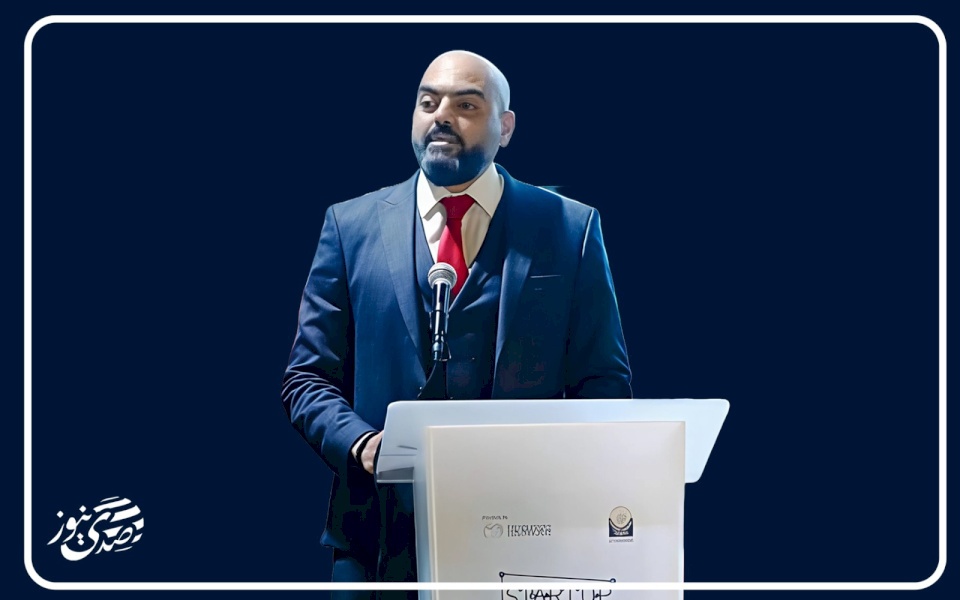
Inspirational Mamdani
Zahran Mamdani's victory as the Mayor of New York was not just a fleeting electoral event, but a cultural and political transformation that transcended the American city to the streets of Palestine and its virtual camps on social media. The young man, born to immigrant parents of Indian and Ugandan descent, managed to defeat money with awareness and demonstrated that politics can be humane, close to the people, and express their dreams rather than the interests of funders. At a time when young people increasingly feel disillusioned with the efficacy of public participation, his victory served as a new spark of hope, as many Palestinians see him as a model of a generation that does not succumb but creates its own path with determination and awareness.
Zahran, who belongs to the progressive wing of the Democratic Party, along with his wife Rama Duji, crafted a rare success story in the crowded American landscape of interests and influence. While he led the campaign with a grassroots approach and direct communication with people, Rama – the creative filmmaker – documented this journey and transformed it into a poignant human narrative, merging authenticity, simplicity, and dreams. She played a hidden yet crucial role, reshaping her husband's image in the eyes of the public not as a traditional politician but as a human being who sees politics as a means to serve people rather than control them. Rama became part of the story, a symbol of partnership that transcends love to become a shared project for justice and dignity.
What made Mamdani an extraordinary phenomenon is that he redefined the relationship between politics and people. He entered the race not with massive funding or loud advertising campaigns, but with plain grassroots engagement and truthful words. He knocked on the doors of the poor, sat in small cafes, listened to the stories that no one else hears, and shaped his electoral program from them. He spoke about rent, public transport, education, housing justice, and the daily issues that often disappear from politicians' agendas. Thus, he built a collective consciousness that made people feel they were part of the campaign, not just voters. His defeat of the political money machine was seen as a reclamation of the democratic spirit that New York has lost for a long time.
In Palestine, this victory became a broad topic among youth on social media. Mamdani was not only viewed as a progressive politician but as a symbol of a generation that believes in justice and refuses to submit. Palestinian pages flooded with his images, quotes, and clips from his speeches, and comparisons began between him and the local reality: Why don't we have politicians like him? How can awareness turn into a real tool for action? It seemed that his victory awakened in them a deep-seated feeling that success is possible even in the harshest environments, and that change does not require influence but faith and determination. He became a special source of inspiration for a Palestinian generation.
What’s even more exciting is that Zahran himself did not hide his interest in the Palestinian cause; he spoke openly about the rights of the Palestinian people and rejected oppression and discrimination, which brought him closer to the hearts of Palestinians who saw in him a new face of American politics that does not conform to the conventional discourse. It was not just a victory for a man of immigrant origins, but a triumph of values of justice and freedom that transcend borders, making human belonging a bridge between peoples.
In an increasingly divided global scene, the victory of Mamdani and his wife Rama served as a reminder that values do not die, that sincere words can defeat billions, and that politics can still be an ethical human act. Interestingly, this inspiration did not stop at the borders of New York; it reached Ramallah and Gaza, to youth who write their posts every day between oppression and hope, seeing in him a reflection of their old dream: that politics be an art of serving people, not a means of dominating them.
Mamdani has become more than just a mayor; he is a symbol of a new global generation redefining the concept of leadership, not from the seats of power but from the field, not from tall towers but from streets crowded with people. Together with his wife Rama Duji, he embodied a rare model of harmony between thought and art, between political work and human vision, between personal ambition and the public interest.
In a time when faith in institutions is collapsing and the world is drowning in individualism and indifference, Zahran Mamdani's victory says something simple yet profound: change begins with belief, awareness is stronger than money, and justice is not just a slogan but an ongoing action. Among all the cities that followed his triumph, perhaps none understood its deep meaning as well as the Palestinian youth, who saw in him a mirror of their dream that has been suspended for decades – a dream that politics should be a morality, not a self-interest, and that awareness ultimately prevails.

Between "Here is Jerusalem" and "Here is Gaza" ... The Voice of a Nation and the Steadfast...

While some count the boos, Palestinians count their martyrs.. Paradoxes of the internation...

When the Palestinian Issue is Reduced to Gaza Management

Legally Licensed Occupation

The Absence of the Palestinian Representation and the Bet on Time

Palestine: When the Criminal is Declared a 'Peace Maker'

Don't Blame the Palestinian People for the Failures of Your Regimes and Ideologies

